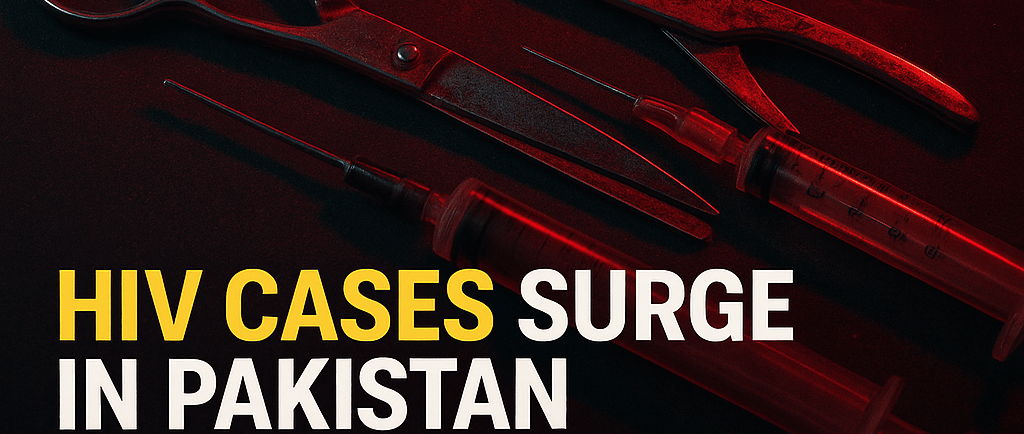HIV Cases Surge in Pakistan — Salons & Clinics Under Fire
HIV is spreading fast in Pakistan as unsafe practices in salons and aesthetic clinics pose hidden risks. Urgent action needed to prevent infections.
NATIONALHEALTH
8/26/20252 min read


HIV in Pakistan: Hidden Threats Beyond Hospitals
In Pakistan, HIV is spreading at an alarming rate—so much so that experts call it just the “tip of the iceberg.” Despite Pakistan’s commitment as a signatory to the Sustainable Development Goals (SDGs) to curb HIV transmission, the epidemic continues to gain ground.
According to the U.S. Centers for Disease Control and Prevention (CDC), HIV spreads primarily through unprotected sexual contact, sharing contaminated needles or syringes, and from mother to child during pregnancy, childbirth, or breastfeeding. These are well-documented risks. However, public health efforts in Pakistan have focused almost entirely on hospitals and treatment facilities, overlooking other major sources of transmission.
Unseen Risks: Beauty Salons and Aesthetic Clinics
HIV is largely behavior-driven—unsafe practices like unprotected sex and needle sharing are obvious culprits. But what about beauty salons, barbershops, and aesthetic clinics? These venues are rarely scrutinized, even though they pose a significant risk of spreading blood-borne infections.
Many beauty workers lack proper training on sterilization and HIV prevention. Simple services like manicures, pedicures, waxing, shaving, electrolysis, or tattooing can become dangerous when non-sterile tools are reused. Even a tiny amount of infected blood—just 0.3 ml—is enough to transmit HIV.
Aesthetic clinics and hair transplant centers also demand attention. In many cases, these facilities operate without board-certified specialists, a basic requirement to ensure safe procedures. Poor infection control in these settings increases the risk of HIV and other serious infections.
Government Reforms Show Promise—but More Action Is Needed
Health Minister Syed Mustafa Kamal’s administration has signaled a strong commitment to reforming healthcare. The appointment of Professor Dr. Ayesha Isani Majeed as Federal Director General of Health is widely welcomed. Her proven track record in managing the National HIV/AIDS Control Program and other major public health initiatives demonstrates her ability to deliver results with integrity.
A Call to Action for Public Health Authorities
To prevent HIV transmission in non-traditional venues, regulators must:
Educate salon and clinic staff: Launch mandatory workshops on HIV prevention, sterilization, and use of disposable tools.
Enforce strict inspections: Regular audits should ensure compliance with hygiene standards in barbershops, salons, and aesthetic practices.
Set qualification standards: Only board-certified doctors should perform aesthetic procedures to minimize infection risks.
With swift action, these measures could dramatically reduce HIV transmission rates and protect thousands of Pakistanis from preventable infections. Policymakers must act now to tackle these hidden sources of HIV spread before the situation worsens.
Explore
Your lens into Pakistan's vibrant stories.
Connect
Discover
+92-300-0440097
© 2025. All rights reserved.
